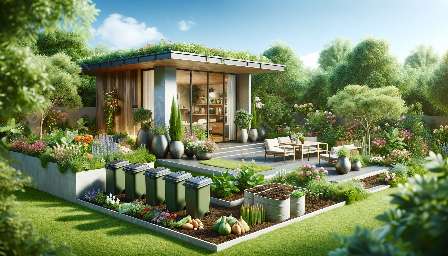Composting is an excellent way to recycle organic waste and enrich the soil in your yard and patio. When choosing materials for composting, it's essential to select items that are compatible with the composting process and can add value to your outdoor space. In this article, we'll explore various materials suitable for composting and how they can benefit your yard and patio.
Organic Kitchen Waste
One of the most common materials suitable for composting is organic kitchen waste. This includes fruit and vegetable scraps, coffee grounds, tea bags, and eggshells. These items are rich in nutrients and can help create a balanced compost mix.
Yard and Garden Waste
Materials such as leaves, grass clippings, and plant trimmings make excellent additions to a compost pile. They provide essential carbon and nitrogen elements, aiding in the decomposition process and contributing to the overall health of your soil.
Cardboard and Paper
Unbleached cardboard and paper products, such as cardboard rolls, newspaper, and shredded paper, can be used for composting. These materials help maintain proper aeration and moisture levels within the compost pile while also providing carbon for the decomposition process.
Wood Chips and Sawdust
Wood chips and sawdust from untreated wood are suitable for composting, especially for creating a balanced carbon-to-nitrogen ratio. However, it's important to use these materials sparingly, as they can be slow to decompose.
Straw and Hay
Straw and hay are valuable composting materials that introduce carbon and structure to the compost pile. They can help create air pockets within the pile, promoting proper airflow and preventing compaction.
Coffee Grounds
Used coffee grounds are an excellent addition to a compost pile due to their high nitrogen content. They can help speed up the decomposition process and add valuable nutrients to the compost mix.
Eggshells
Eggshells are rich in calcium and can help balance the pH levels in your compost. They should be crushed before adding to the pile to facilitate decomposition.
What Not to Compost
While many materials are suitable for composting, some items should be avoided. These include meat, dairy products, oils, and pet waste, as they can attract pests and create odors in your compost pile.
Conclusion
Choosing the right materials for composting is crucial for enhancing your yard and patio naturally. By incorporating suitable composting materials, you can create nutrient-rich soil that promotes healthy plant growth and contributes to a thriving outdoor space.


